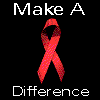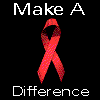HIV/AIDS Awareness at Swinburne University
(Prahran Campus)
Home
News
Links
Testimonial
F.A.Q
Contact Us
Frequently Asked Questions
Why this site?
AIDS and HIV - what is the difference?
Am I at risk?
How could I catch this virus?
How is HIV transmission prevented?
What can I do next?
It's impossible for us to list all the info here so we've condensed it down a bit. We have also included links to AIDS.org a brilliant information site at the bottom of some answers. Please feel free to wander off there and have a good snoop around.
This site was set up to fill a hole in AIDS Awareness and prevention information on the Prahran Campus. We felt that the best weapon we can give you is information and all of it readily reachable. Many of the students at Swinburne Prahran Campus fall into the main high risk demographic (under 30yo) and we felt it was important to reach those people with the right messages.
AIDS and HIV - what is the difference?
Excellent question. What the media commonly refer to as AIDS is actually an acronym for Acquired Immune Deficiency Syndrome. This is a set of conditions of the human immune system that make the individual susceptible to otherwise harmless biological bugs. In fact, most people who die as a result of AIDS die of other diseases such as pneumonia or complications due to other infections (known as "opportunistic infections").
The syndrome is created when the state of the immune system of the patient falls below a critical point. At this point, without the natural protection, we can get very sick very easily.
HIV (Human Immunodeficiency Virus) is the culprit. HIV is a blood-borne virus that also resides in many bodily fluids. Once it finds it's way into your bloodstream it invades normal immune cells (called CD4, T4 cells or "helper" cells) and destroys them. Not only that, it takes what's left of the destroyed cell and makes thousands of copies of itself which then go on to invade other immune cells. CD4 cells are a vital part of the body's immune system. The CD4 cells tell other cells of the immune system what to do when an invading organism, germ or cancer is found in the body. As HIV kills off the CD4 cells the body is less able to fight off other, opportunistic infections.
At a certain critical point, the immune system is so compromised, any infection at all can be fatal if not dealt with quickly and efficiently.
It is important to note that you cannot catch AIDS. You can catch HIV. HIV does the damage.
There any many treatments for HIV but no cure. Once a person is diagnosed with HIV they will have it for life.
read more about this at aids.org
If you are sexually active and not practicing safe sex then the answer is YES. HIV does not discriminate. It doesn't care if you're straight or gay or bi or whatever! As long as you've got an immune system, it's interested in you too. Remember HIV doesn't care who you are. It just wants to make more copies of itself and spread further.
For a long while it was thought that HIV was a problem in only the gay and IV injecting communities. This is where the syndrome first appeared. In fact the very first cases of AIDS were called GRID (Gay Related Immune Disease) and were thought to be a form of cancer. Further research found that this was not at all true.
The HIV virus is everywhere now and everyone is at risk. Abstinence and/or safe sex are the only ways we know to prevent the spread.
There are really only a few ways that you can catch HIV. It is important to note that the virus itself is rather weak outside the human body so it is IMPOSSIBLE that you could catch HIV from activities such as sharing crockery or cutlery etc. It's also worth noting that the virus does not seem to able to be spread via mosquito bites (the virus cannot live in the mosquito's gut) or via "normal" friendly kisses. You can't catch it from hugging someone. All of this is good.
Sharing bodily fluids is the only way of transmitting the virus. This happens through blood transfusions, shared IV equipment and unsafe (unprotected) sex.
Unsafe sex is intercourse without a condom where direct contact with bodily fluids are involved. HIV resides in semen, blood and, albeit less so, in vaginal and anal secretions/fluids. It is recommended that ANY intercourse be safe (Use a condom) and oral sex is ok too provided the health of the gums etc is good.
Bleeding gums are not safe - either way. Anything that allows the virus to get in contact with your blood is not terribly safe.
read more about this at aids.org
How is HIV transmission prevented?
We are attacking the problem on two fronts. Safe sex and information.
Using a condom during sex is a must. Being aware of the risks is important. By making sensible, informed decisions about how we engage in sexual activity we can best avoid infection.
It's important here to note that an HIV infected person may not know that they are infected or may look perfectly healthy. Once infected it can takes up to 3 months for any signs to show and by that stage the infected person may have had unsafe sex with many people. It is impossible to know everything you need to know about someone by the time sexual contact begins. Practicing safe sex at all times reduces the risk substantially. Remember, they may not be lying to you, they might just NOT KNOW. Protect yourself.
For IV drug users, using clean needles at all times is a great protection. Needle Exchange Programs will provide clean needles, safe injecting equipment and safe injecting information, on request, with complete confidentiality - it's the law!
Well, if you're still reading this then you're doing pretty well so far. We believe the best way of avoiding infection is by knowing when you're at risk and making informed decisions. Go to our links page and have a look at some of the information resources available. Some of the sites are really rather fascinating.
If you've found out recently that you are in fact HIV positive (you have made contact with the virus and the evidence shows in a blood analysis) the first thing we would recommend is: DON'T PANIC! There are heaps of things you can do to deal with the virus. It's no longer the death sentence it once was and medications are helping people live longer healthier. I was diagnosed with the virus 20 years ago and given 18 months to live and I'm still here thanks to good nutrition, reasonable exercise, not too much partying and sticking to good medicinal regimes. Well, that's how I did it. You may have other plans... fair enough.
We would recommend you get in contact with Victorian AIDS Council . They have lots of places and people they can introduce you to who will be invaluable to you right now. You don't have to be gay or bi or lesbian or anything! All your privacy will be maintained and they're terrific with what you can do next. Give them a call and get yourself on the right track. Just DON'T PANIC!! Ok?
![]() go to top of page
go to top of page
Supported By

STOP AIDS Now : Keep The Promise
Page redesigned by Steven G. Content by Steven G & Stu
Copyright © 2006

